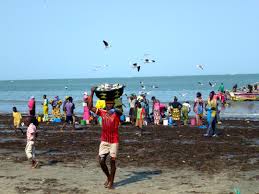By Sariba Manneh
Dawda Badgie technical service director, National Environment Agency (NEA) has called for chemical and pesticides control and management in The Gambia.
He made the called, Wednesday, at a forum on national implementation plan for the Stockholm Convention Bill 2019 held at Baobab Hotel, Bijilo.
According to him, the hazardous chemicals and pesticide control and management Act 1994 was developed prior to the adoption of the said conventions. He revealed that the Act is more than two decades and many chemical related issues have emerged during these times which are not dealt with in this legislation.
“The need for it to be revised and updated is prudent in order to strengthen the national legal capacity towards chemicals management and control.
“The regulation under this Act will also be revised and updated soon after the adoption of the management Bill, 2019. This project will help The Gambia, the revision and its adoption shall be embarked on nationally,” he noted.
He further said the pesticide and hazardous chemicals control and management Act 1994 has been a reference material for many countries and sub-regional bodies within sub region including the CILLS, and due to its comprehensive nature updating it will only add value and strength to it.
He pointed out that The Gambia government has shown full time commitment to the protection of the environment as a vital component of sustainable development.
He disclosed that government of The Gambia has partnered with development partners such as GEF and UNEP in the implementation of Stockholm, Basel, Rotterdam conventions.
According to him “The four Conventions address chemicals management through cradle-to-grave approach, most comprehensively in the case of Persistent Organic Pollutants (POPs).” he added that the government of The Gambia ratified the Stockholm Convention on Persistent Organic Pollutants (POPs) in June 2003 and it’s a global treaty signed by 181 parties.
Badgie explained that The Gambia became member of Rotterdam Convention in 2004. He explained further that Persistent Organic Pollutant (POPs) are groups of synthetic organic chemicals characterized by being very persistent, very toxic, and bio-accumulative and can travel very far within the environment.
He said it causes detrimental acute and long term effects to human health, wildlife and the environment we live in.
The ratification of these conventions, he stated, geared towards mitigating the negative health and environmental problems caused by hazardous chemicals.
The Technical Service Director stated further that The Gambia is a predominantly an agricultural country and depends heavily on pesticides and plant growth regulators to enhance agricultural productivity to control pest. And the country also recognize the need to control and advocate for sound use of chemicals as inscribe in the strategic approach to international chemical management (SAICM) approach.





